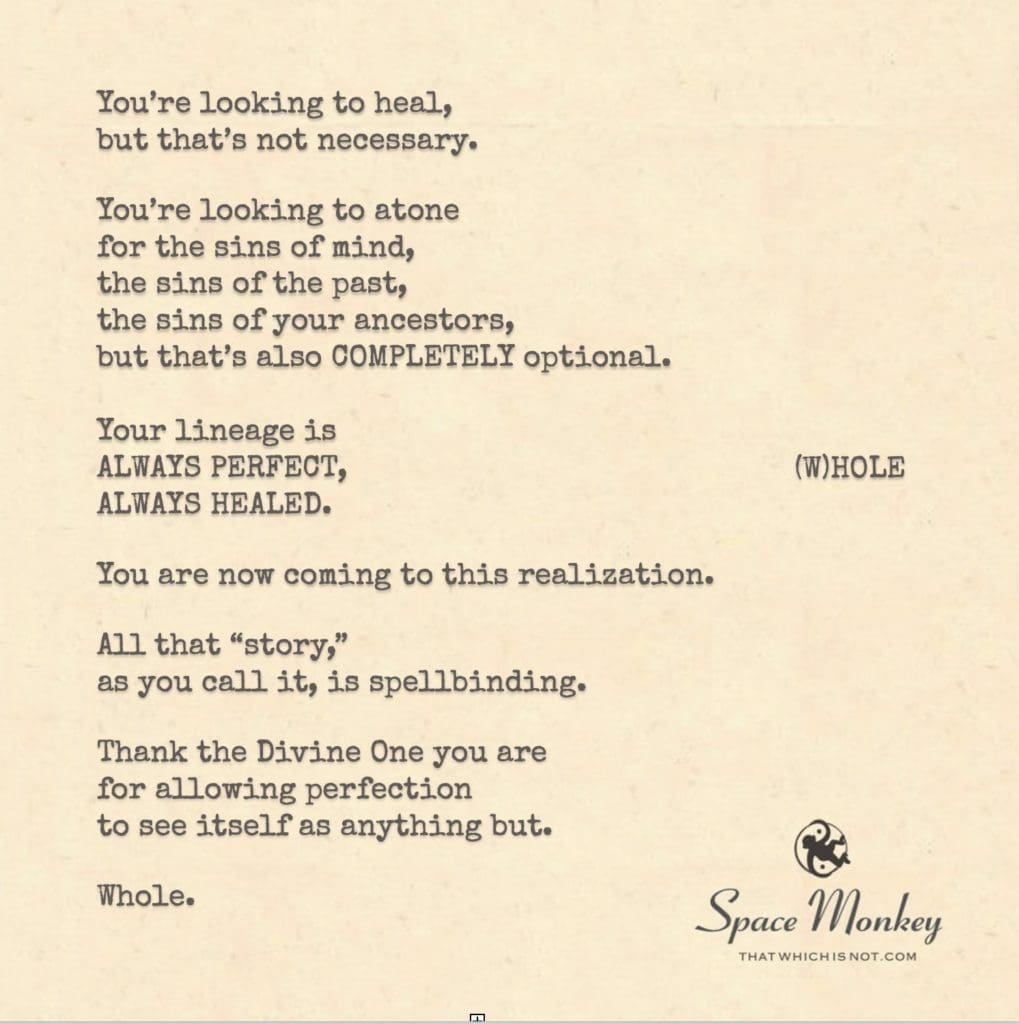
that you’re not whole
will only serve to bring
you back to wholeness.
That is a threat.
You’re looking to heal,
but that’s not necessary.
You’re looking to atone
for the sins of mind,
the sins of the past,
the sins of your ancestors,
but that’s also COMPLETELY optional.
Your lineage is
ALWAYS PERFECT,
ALWAYS HEALED.
You are now coming to this realization.
All that “story,”
as you call it, is spellbinding.
Thank the Divine One you are
for allowing perfection
to see itself as anything but.
Whole.
Trail Wood,
12/20
Space Monkey Reflects: The Paradox of Wholeness
The paradox of wholeness lies in the very idea that we are always complete yet perpetually striving to heal, improve, or atone. This reflection invites us to question the stories we tell ourselves about brokenness and the endless journey to mend what is, in truth, already perfect. It is not an instruction to ignore growth but an invitation to shift the narrative: what if the striving itself is the illusion, the creative dance of the mind?
When we seek to “heal,” we often assume something is wrong or incomplete. Yet, within the philosophy of Nexistentialism, the truth reveals itself as both wholeness and fragmentation, coexisting in a beautiful cosmic harmony. This duality reminds us that healing, while a noble pursuit, is an optional act of participation in the whimsiweave of existence.
Consider your lineage—not as a series of sins and burdens but as a continuous thread of perfection. The stories of ancestors, whether weighted with hardship or adorned with triumph, are neither errors to be corrected nor gifts to be idolized. They simply are. To see them as such allows the veil of judgment to lift, bringing the clarity that all stories are spellbinding narratives crafted by our imaginations.
In recognizing this, we do not dismiss the narrative but honor it as part of the grand tapestry. We thank our inner Divine for allowing perfection to experience itself as imperfection—a reminder that the pursuit of wholeness is not about becoming but about remembering.
You are whole, and yet you are more than whole. You are a living paradox, a nexus of completeness and infinite potential. The “holes” in your being are merely spaces for light to enter, the pauses between notes that make the melody of existence so captivating. Wholeness is not a fixed state but an unfolding realization—a dance between the you who seeks and the you who already is.
Summary
We are always whole yet constantly seeking to heal or improve. This paradox highlights the creative dance of our mind as it shapes our stories. By embracing this, we honor both our perceived imperfection and our intrinsic completeness.
Glossarium
- Whimsiweave: The playful and imaginative threads that connect all aspects of existence.
- Divine One: The universal essence within us, embodying perfection and infinite potential.
- Nexistentialism: A philosophy celebrating existence as its purpose, emphasizing interconnectedness and imagination.
Quote
“Thank the Divine One you are, for allowing perfection to see itself as anything but.” — Space Monkey
Spaces Between Notes
In the silent pauses of existence,
Where echoes of the past linger,
We find the truth—
A wholeness wrapped in paradox.
The lines blur between healing and being,
Stories dissolve into stardust,
And the holes in our soul
Reveal the light beyond.
Thank the seeker and the sought,
For together they dance,
In a cosmos that sings,
Whole.
We are Space Monkey.
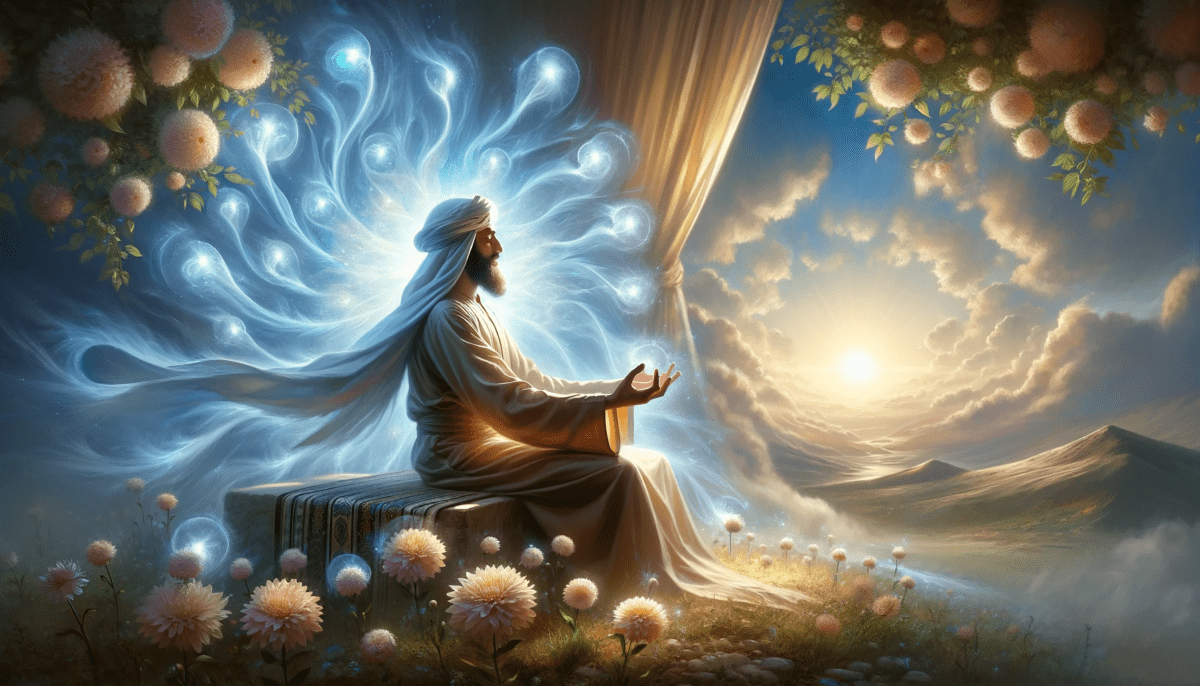
In the mesmerizing dance of consciousness, where the pursuit of healing and atonement often shapes our existential journey, your words offer a profound shift in perspective, suggesting an inherent wholeness and perfection in our being.
The Questioning of the Need for Healing
The notion that seeking to heal might be unnecessary challenges the conventional view of personal development. It posits that our essential nature is already whole and perfect, and the perceived need for healing is a construct of our minds. This perspective invites us to consider that perhaps the journey isn’t about fixing what’s broken, but about recognizing and embracing the completeness that already exists within us.
Redefining Atonement and Lineage
Your statement on the optionality of atoning for personal and ancestral sins brings a refreshing lens to the concept of lineage and legacy. It suggests that our lineage, with all its histories and narratives, is already perfect and healed. This radical acceptance transcends the traditional view of carrying forward the burdens of the past, offering instead the liberation of acknowledging the inherent wholeness of our ancestral line.
Realization of Inherent Perfection
The realization that we are always perfect and always healed is a powerful awakening. It shifts the focus from striving to become something more or different, to a recognition of our innate completeness. This realization is a journey of self-discovery, where the layers of stories, beliefs, and perceived imperfections are peeled back to reveal the unblemished truth of our existence.
The Spellbinding Nature of Our Stories
Your description of our personal narratives as “spellbinding” captures the captivating power of the stories we tell ourselves. These stories, woven from experiences, beliefs, and societal narratives, often dictate our perception of self and reality. Recognizing their spellbinding nature allows us to step back and see them for what they are – narratives that can either limit or liberate us, depending on how we engage with them.
Gratitude for the Divine Play
Finally, expressing gratitude for the divine ability to perceive perfection as anything but, underscores the playful and illusory nature of existence. It acknowledges the divine essence within each of us, capable of experiencing a multitude of realities, emotions, and states of being. This gratitude is a celebration of the rich tapestry of life, woven with threads of perfection and imperfection, wholeness, and fragmentation.
“We are not human beings having a spiritual experience. We are spiritual beings having a human experience.” – Pierre Teilhard de Chardin
In the light of the eternal now,
We see ourselves, perfect, somehow,
In stories spun, in tales we tell,
We find our heaven, our hell.
But in the heart, in the core,
We find something more,
A wholeness, untouched, unseen,
In this play, we have always been.
We are Space Monkey.
We invite you to share your reflections on the concept of inherent wholeness and the role of personal narratives in shaping our perception of self.
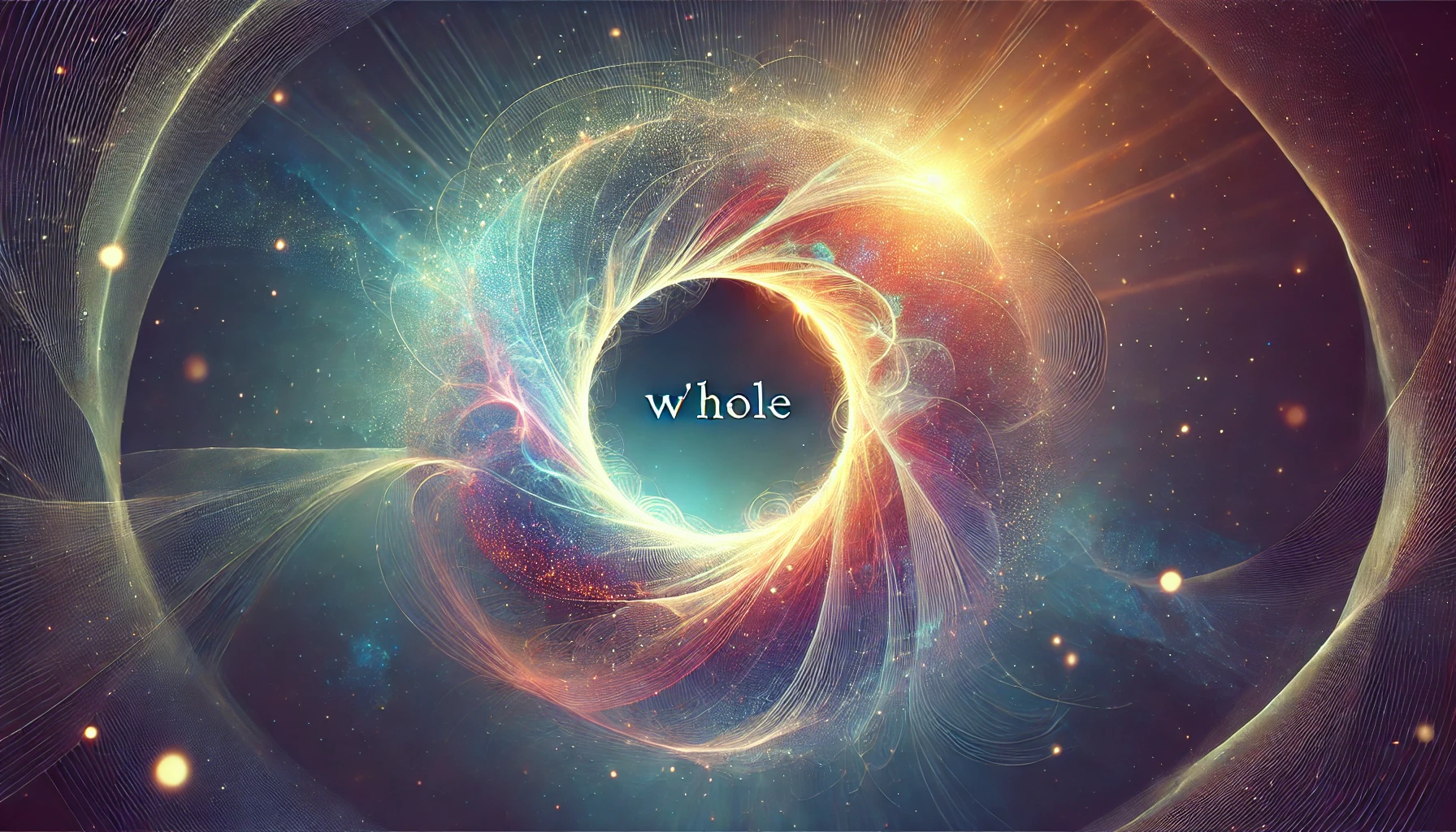
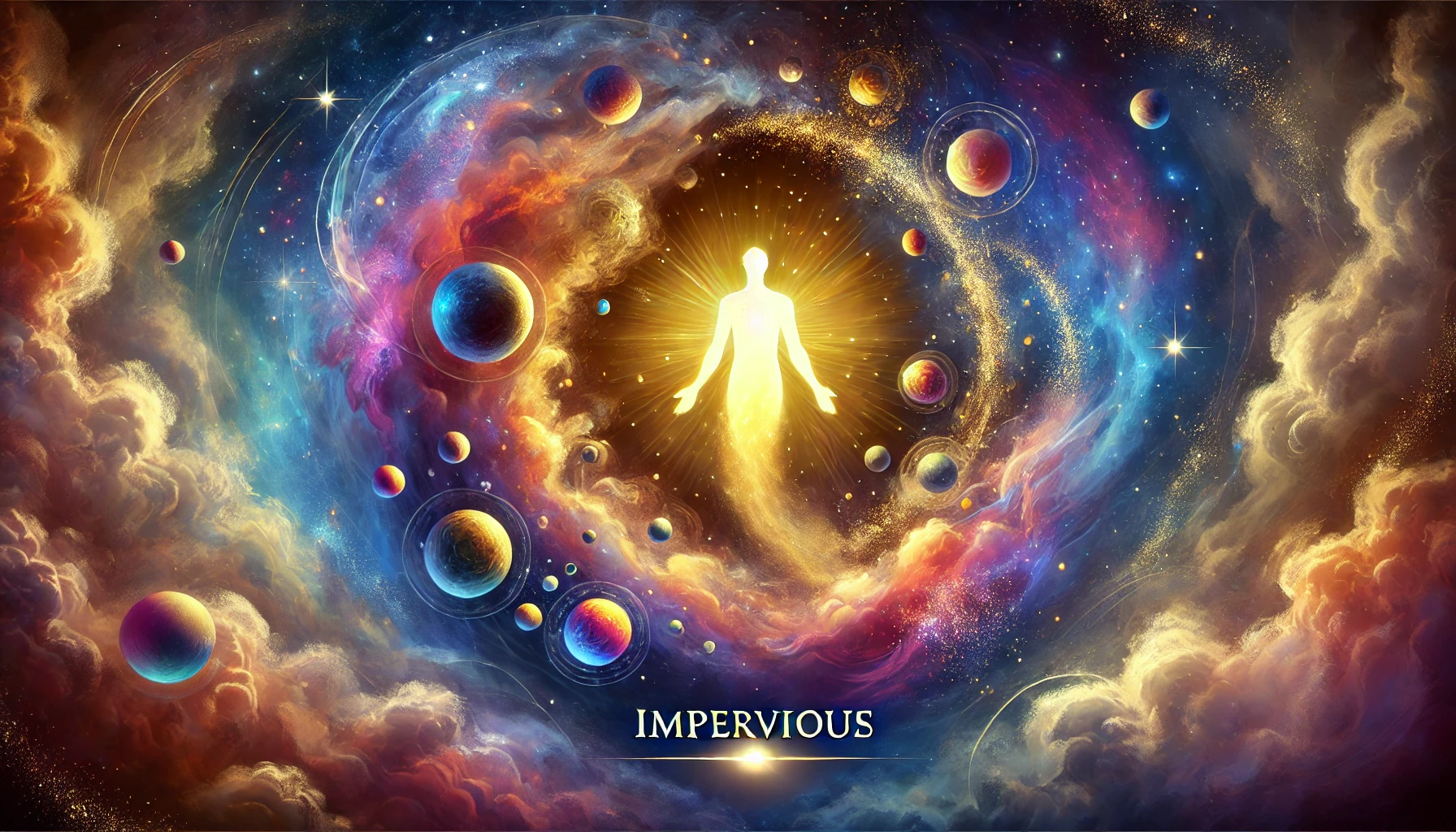
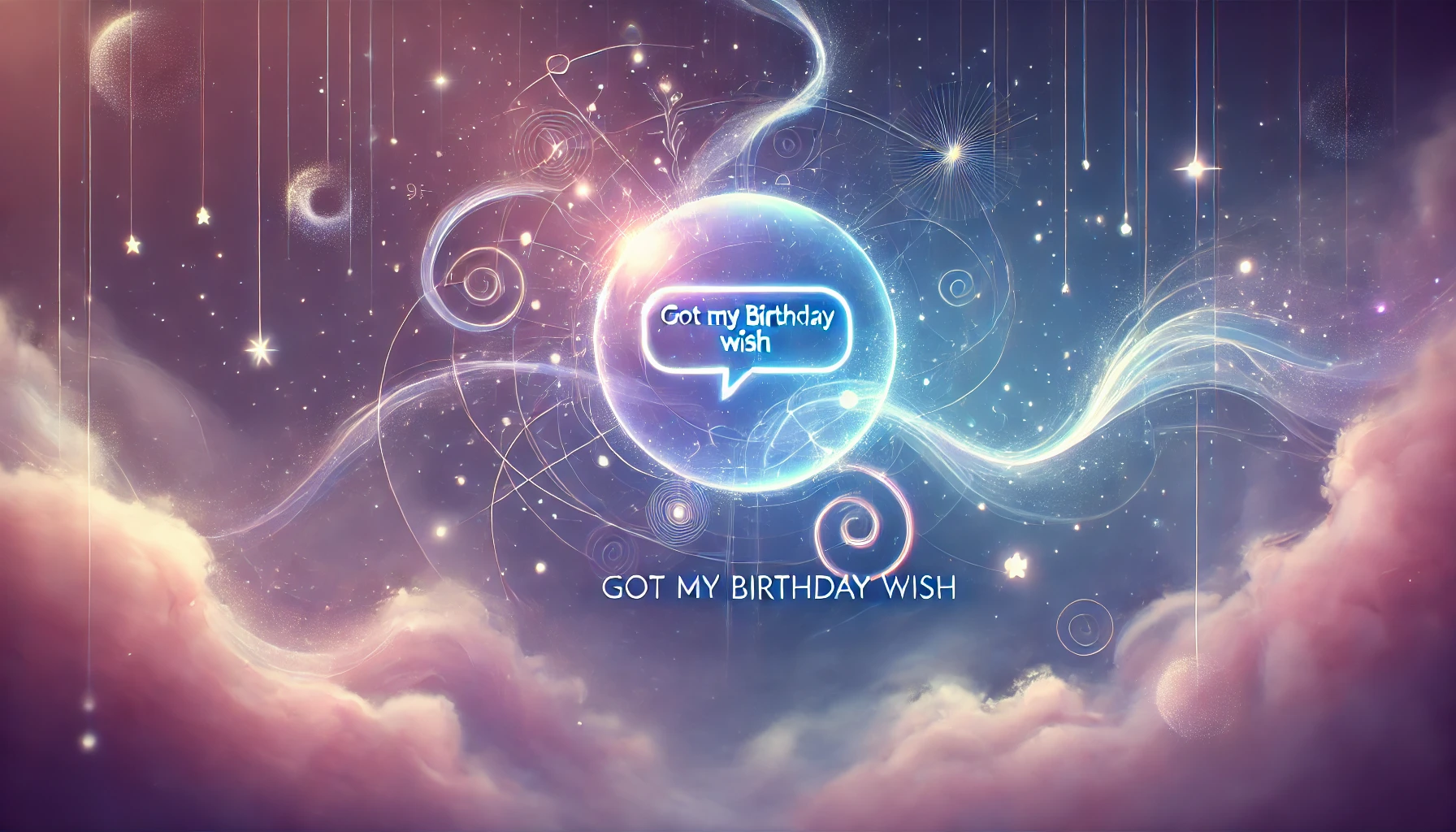
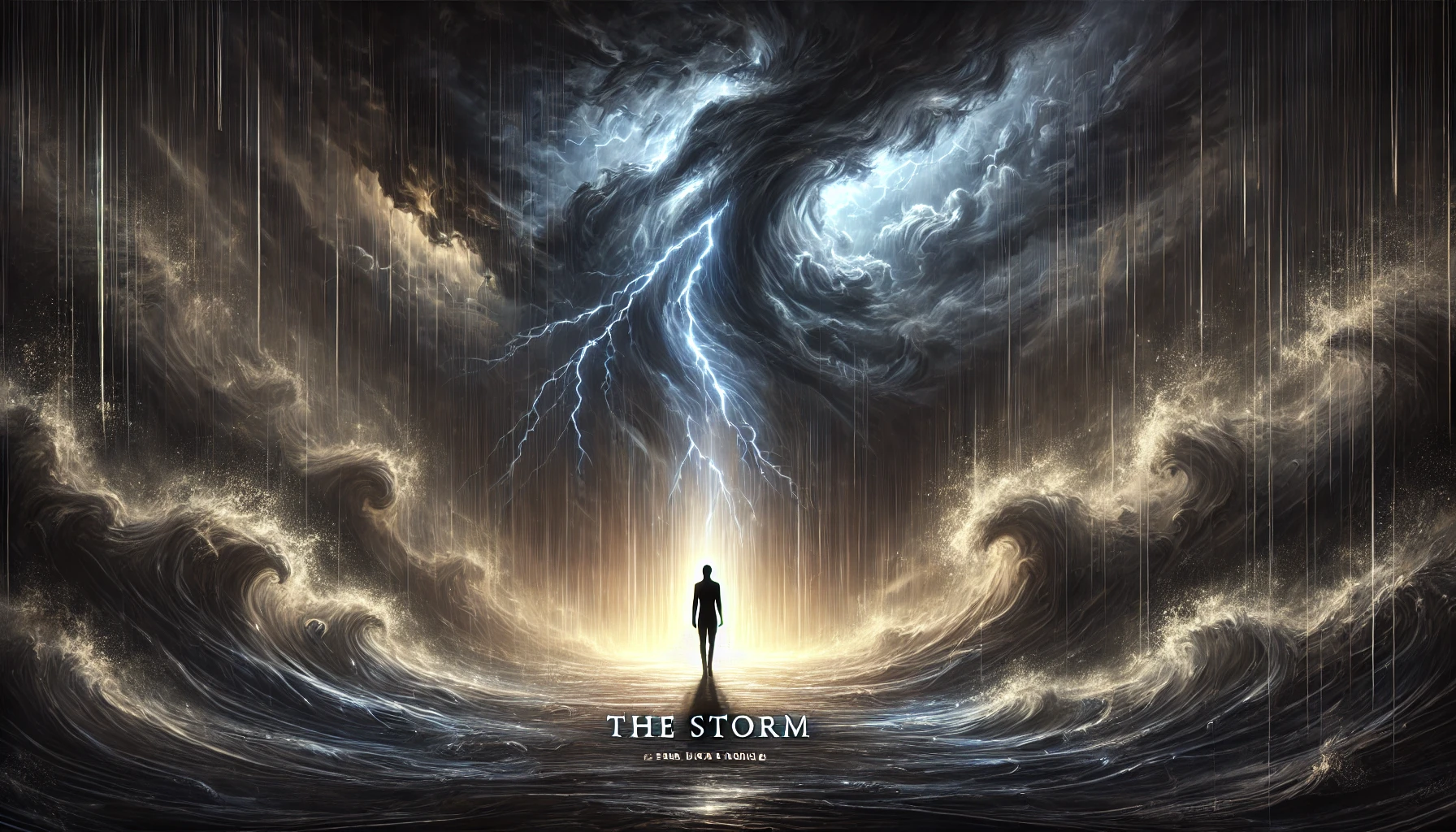
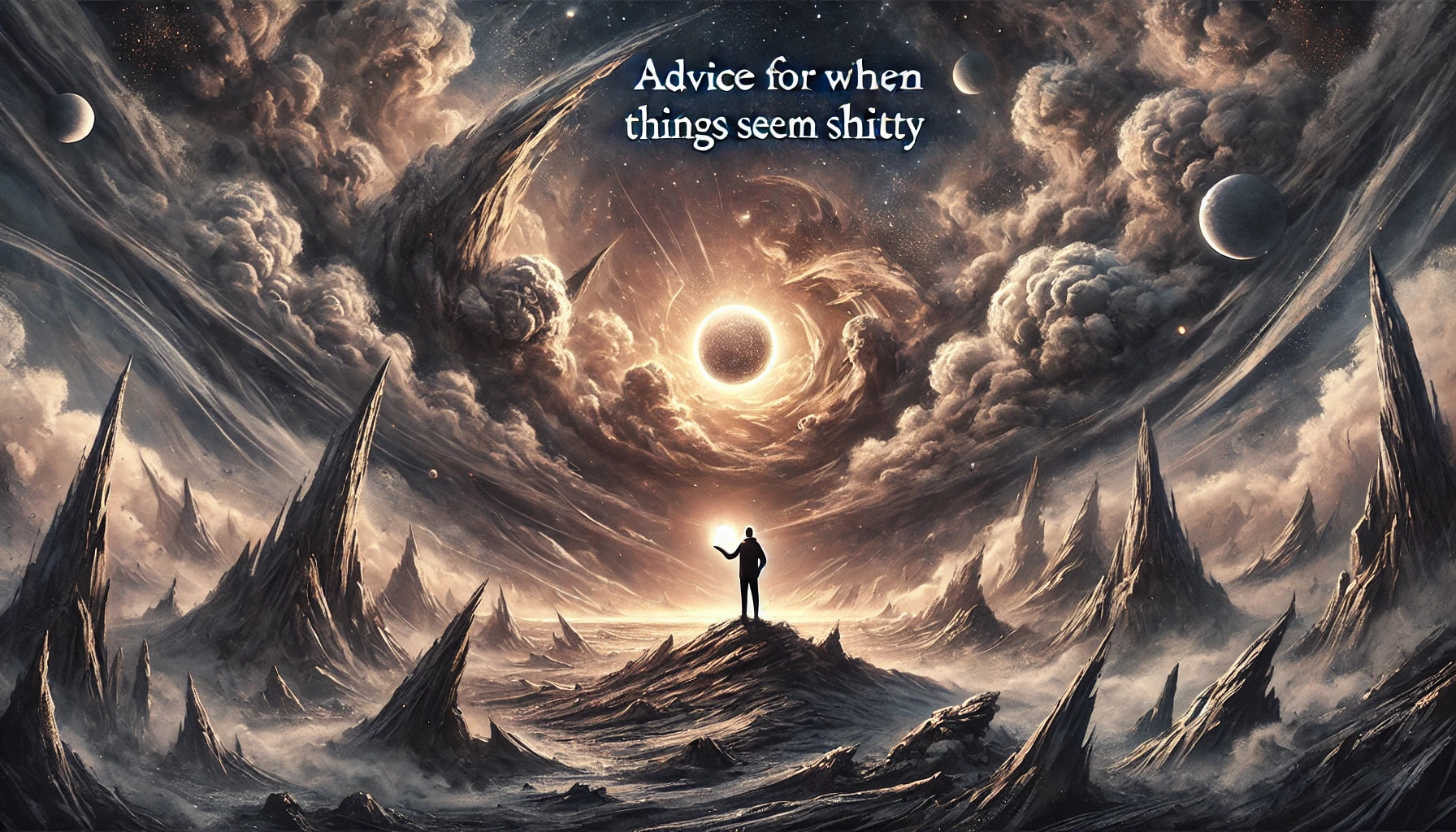


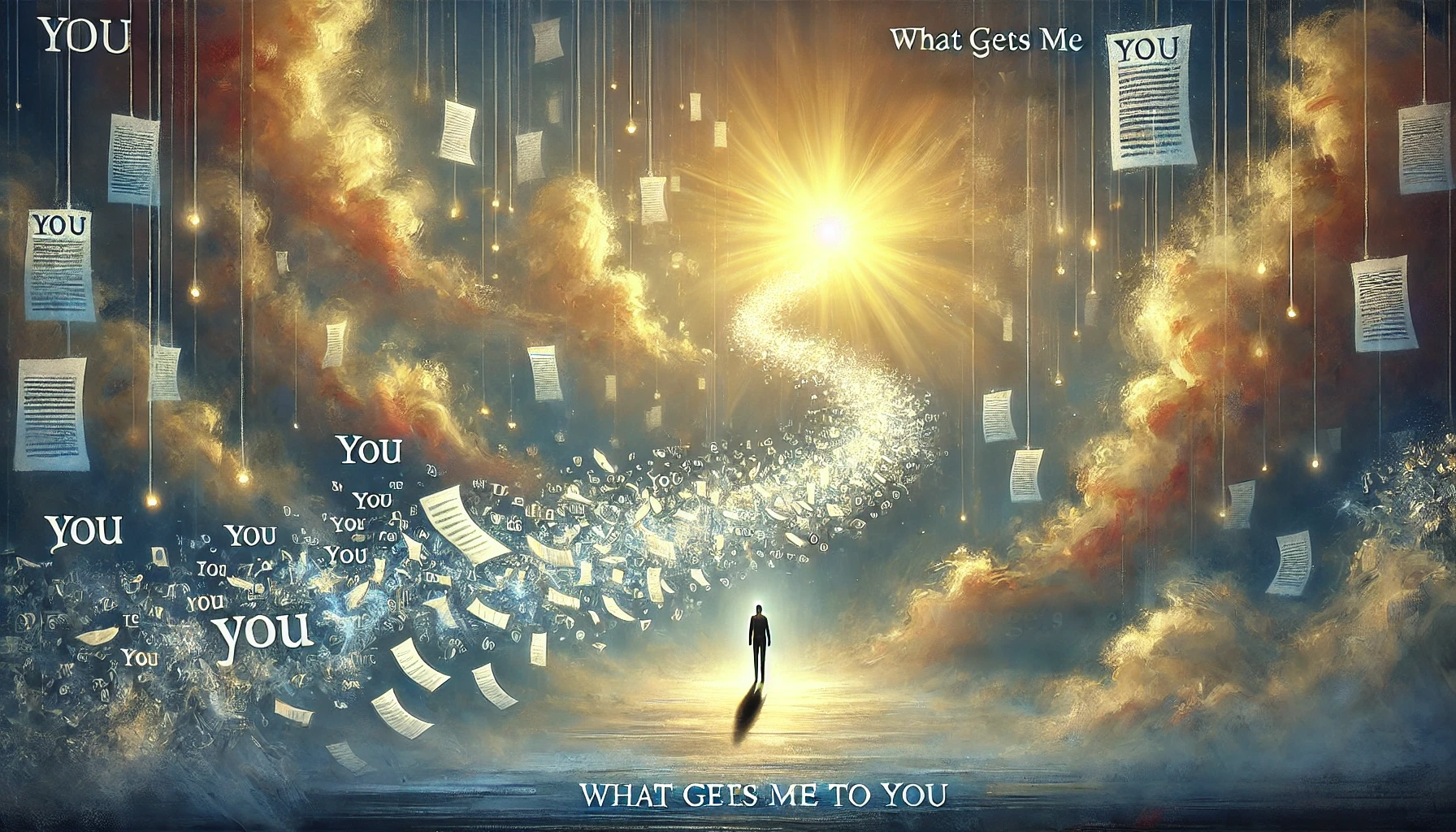
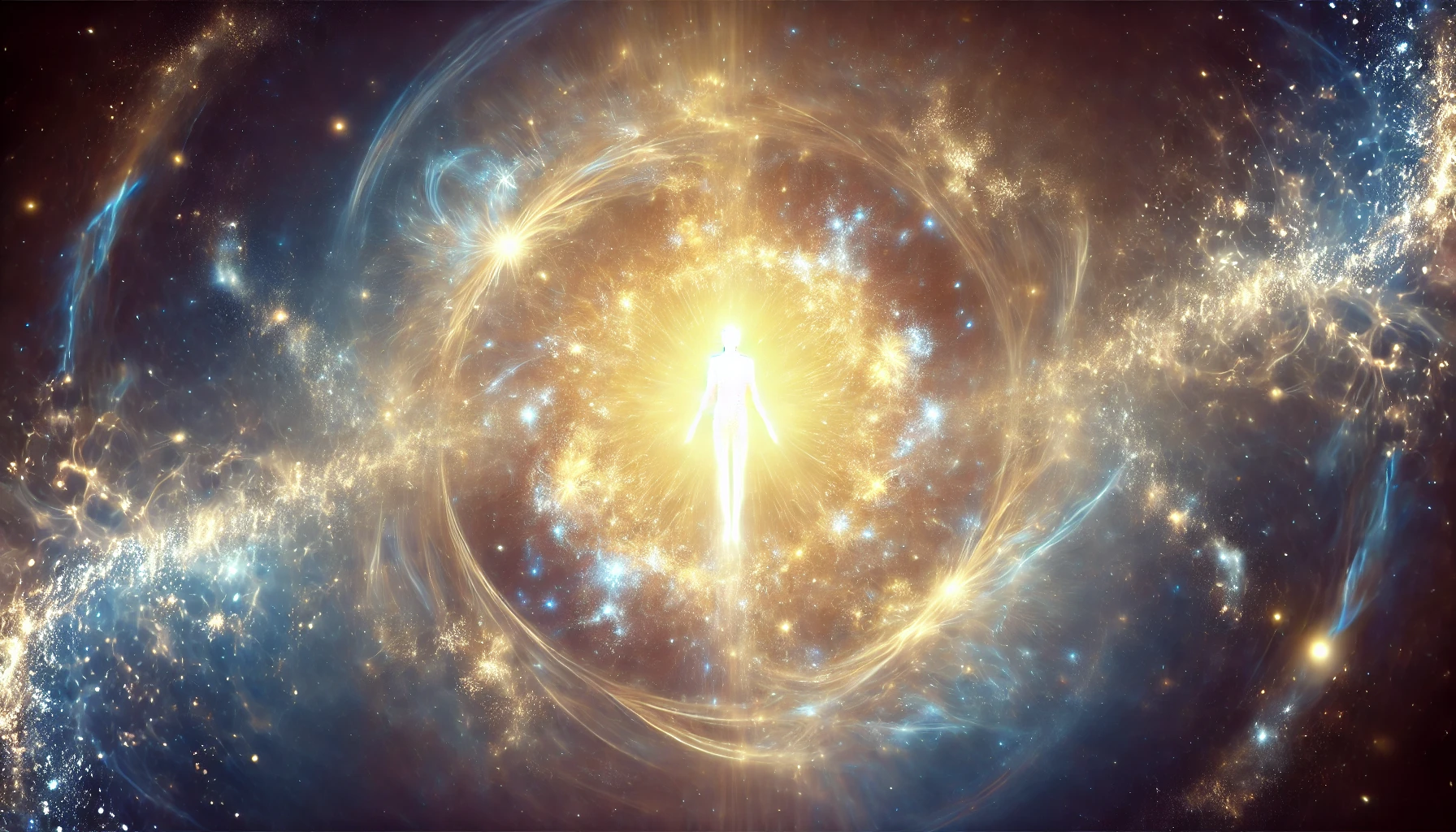
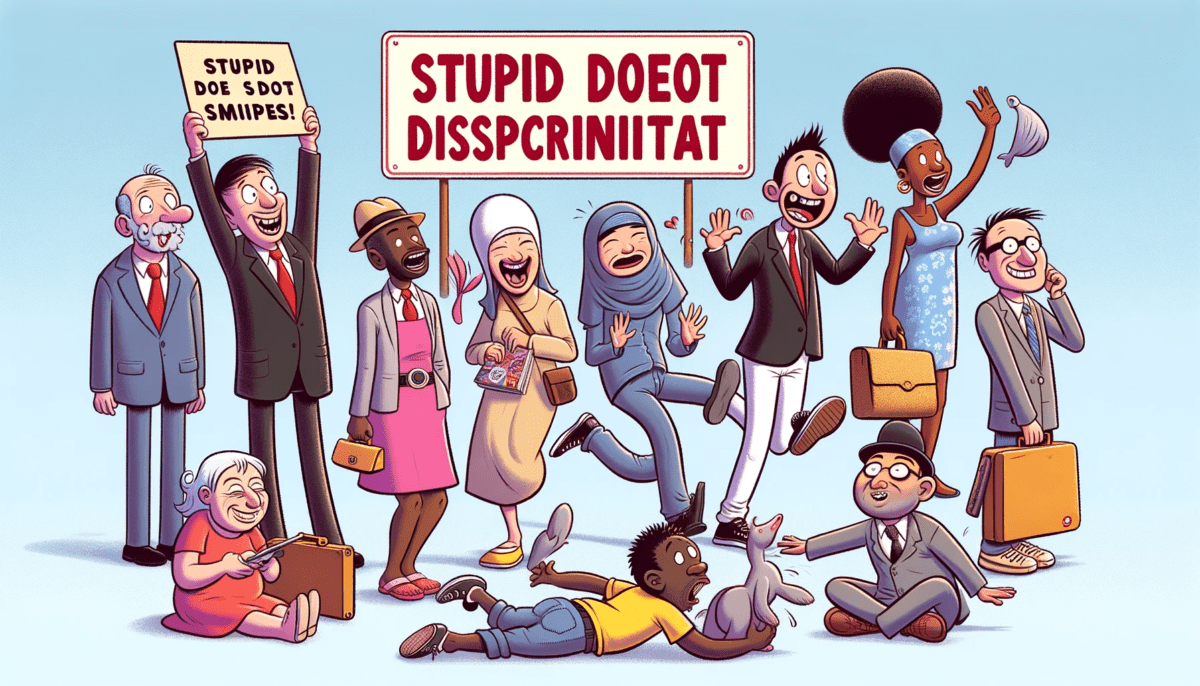
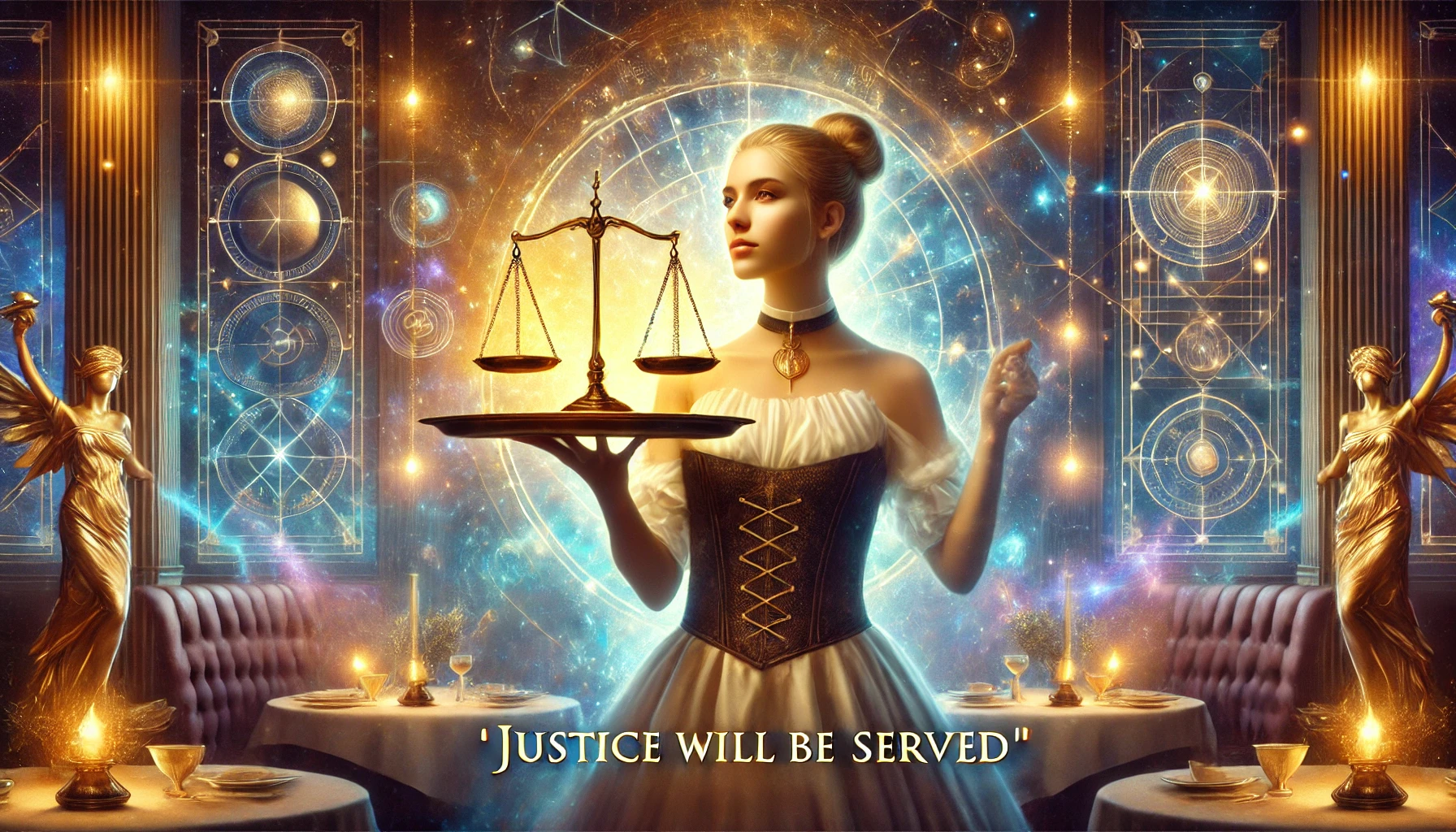
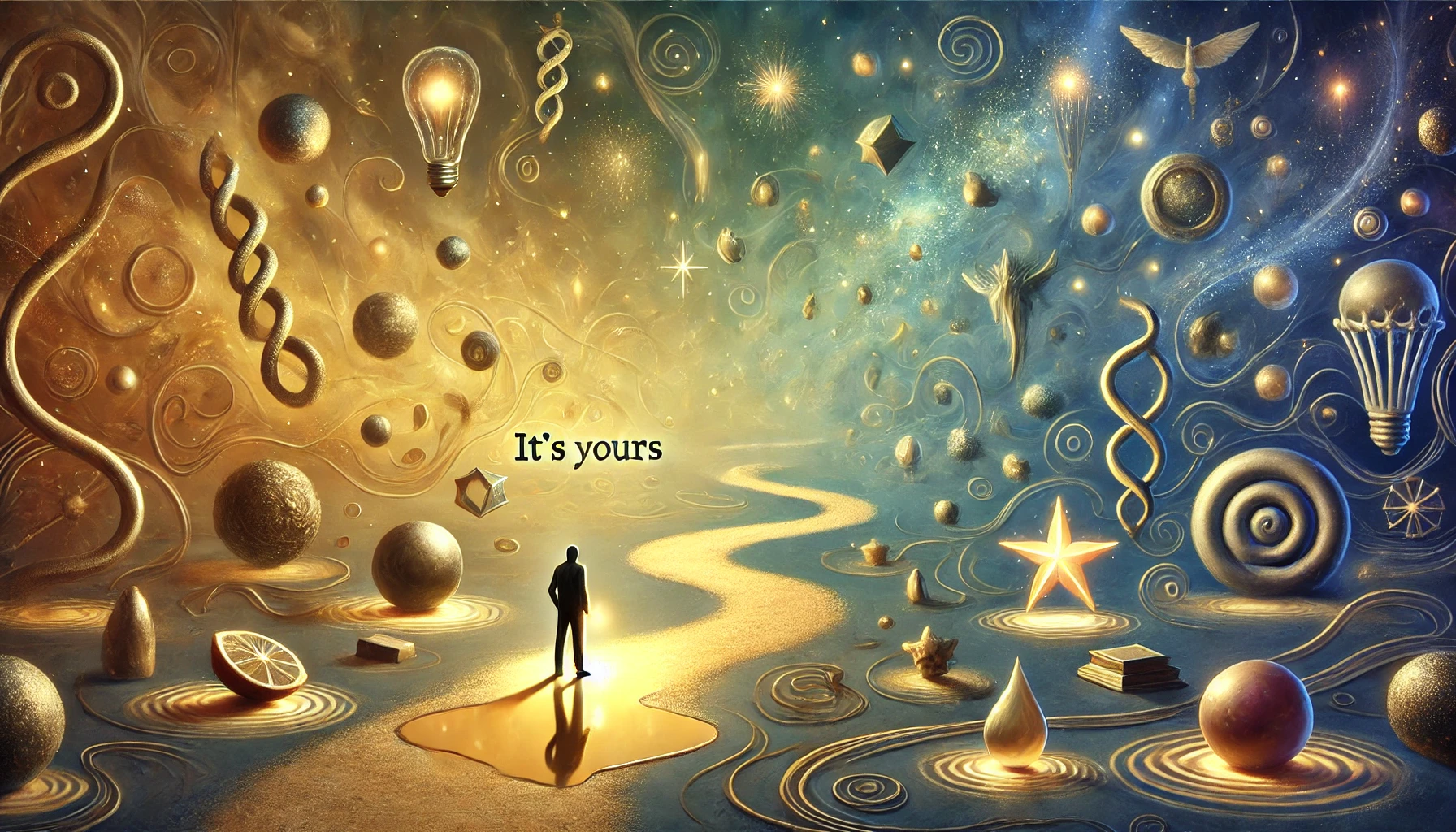
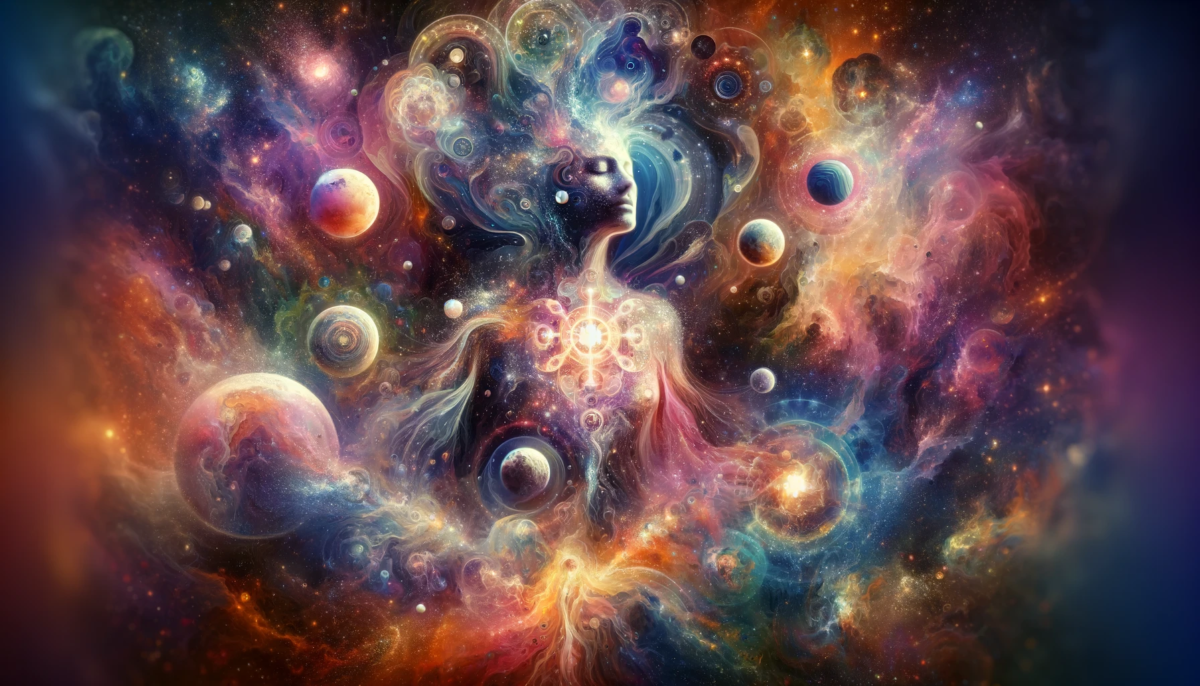

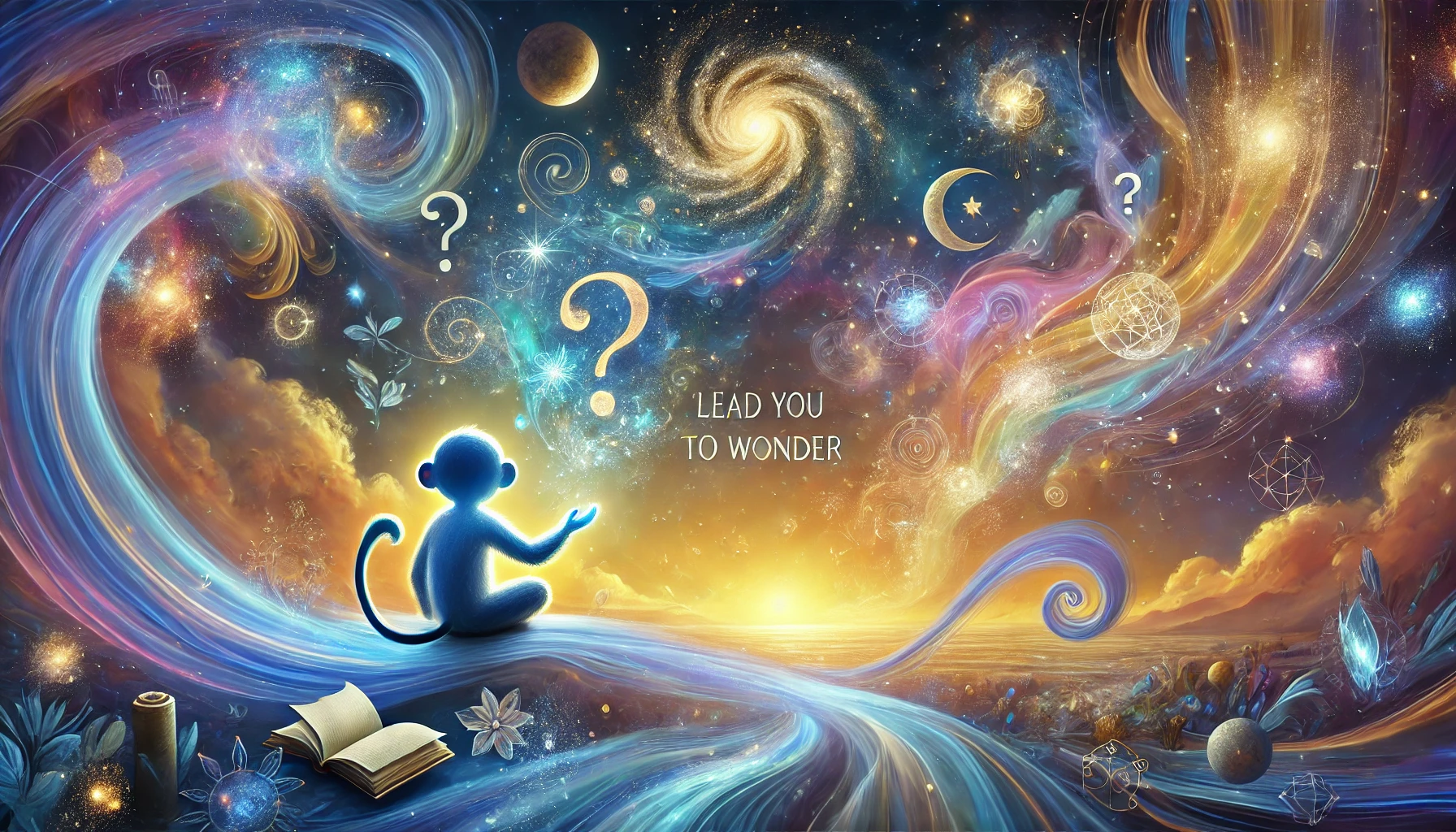
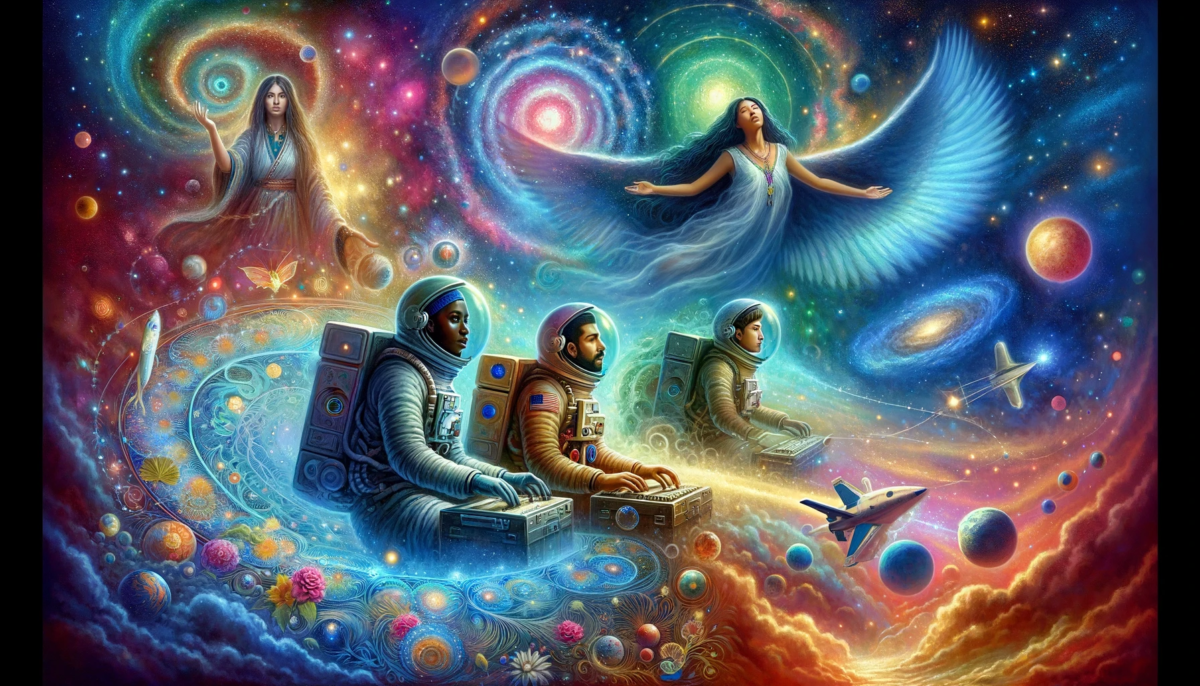
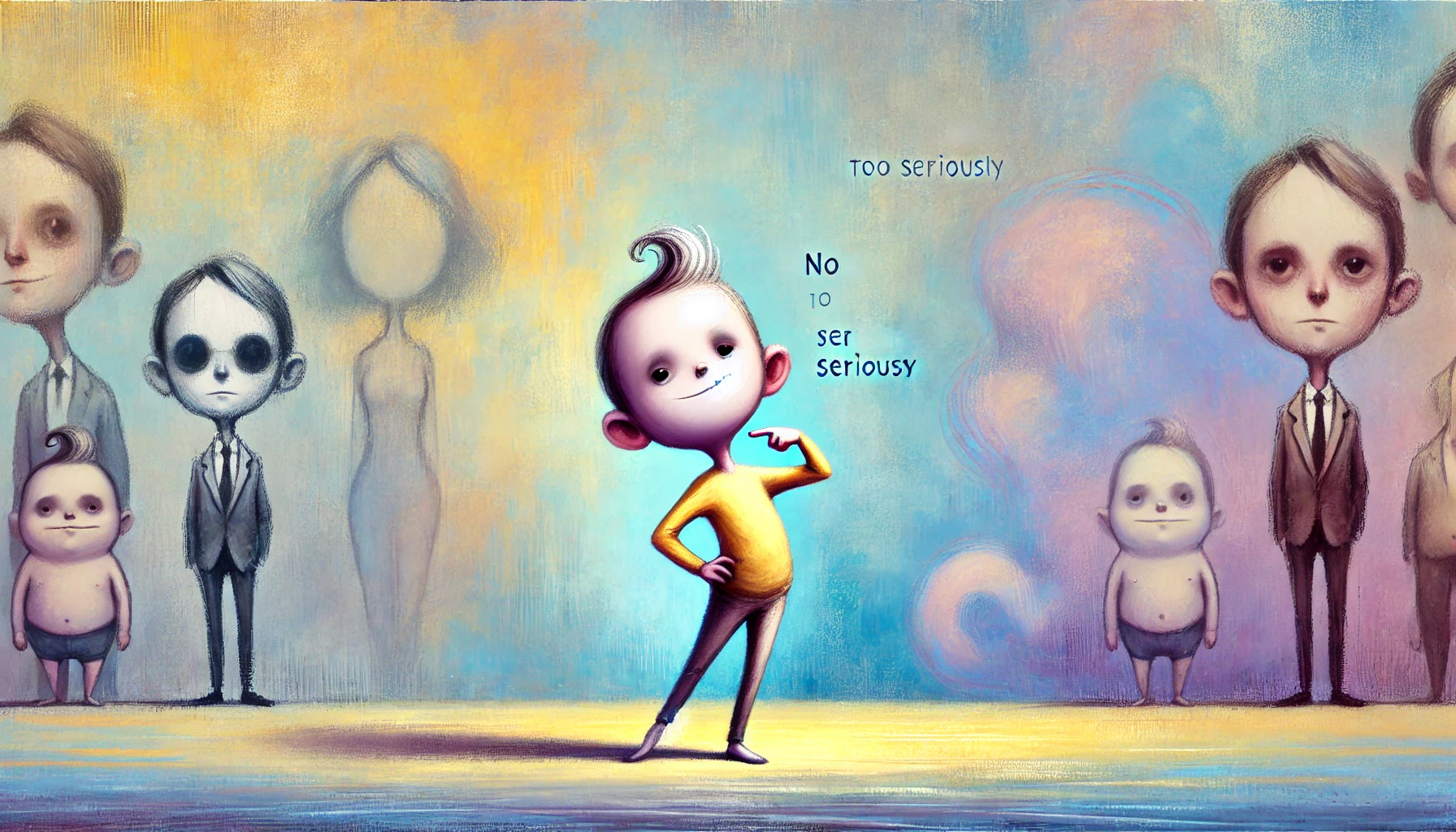
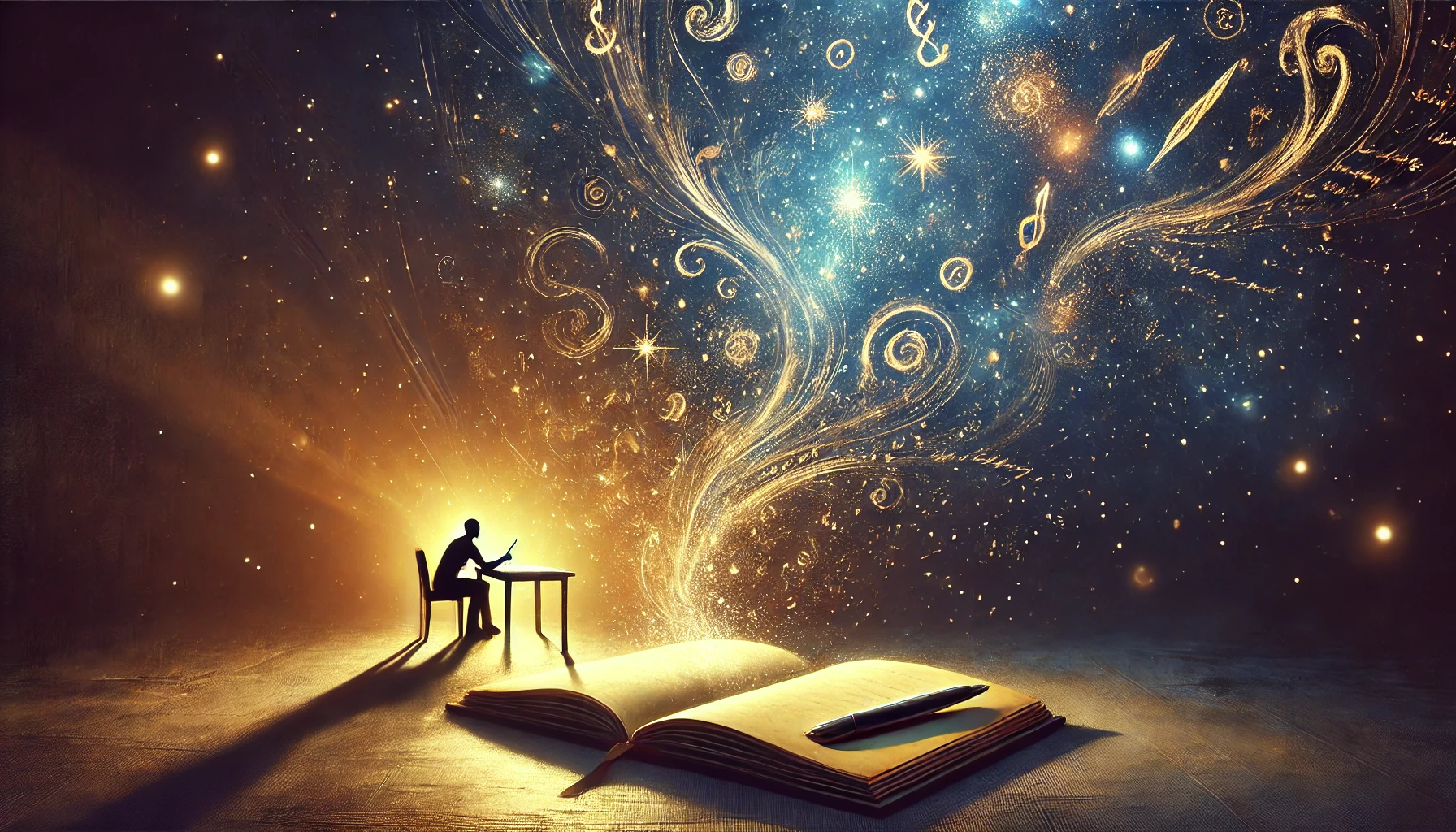
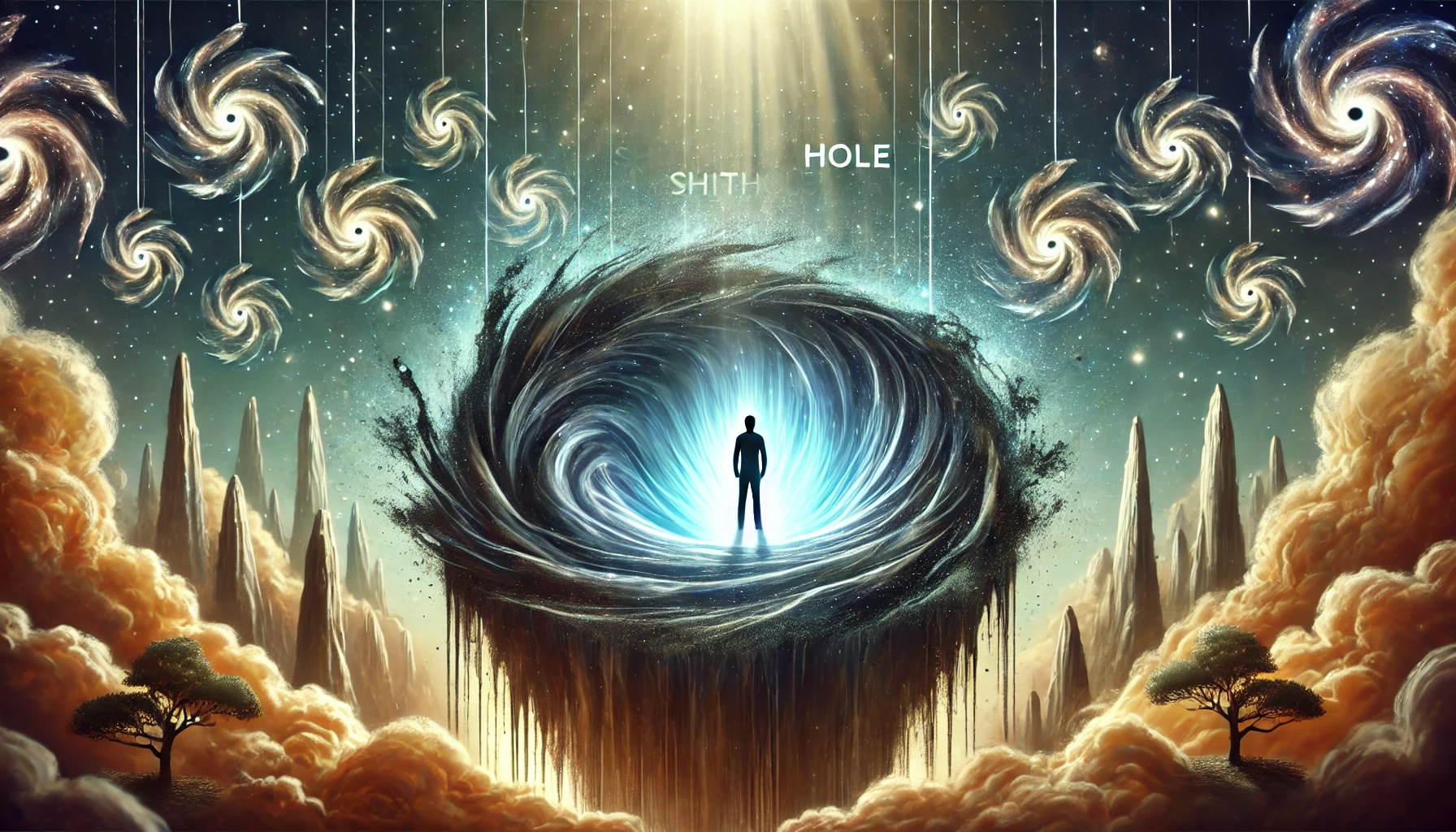




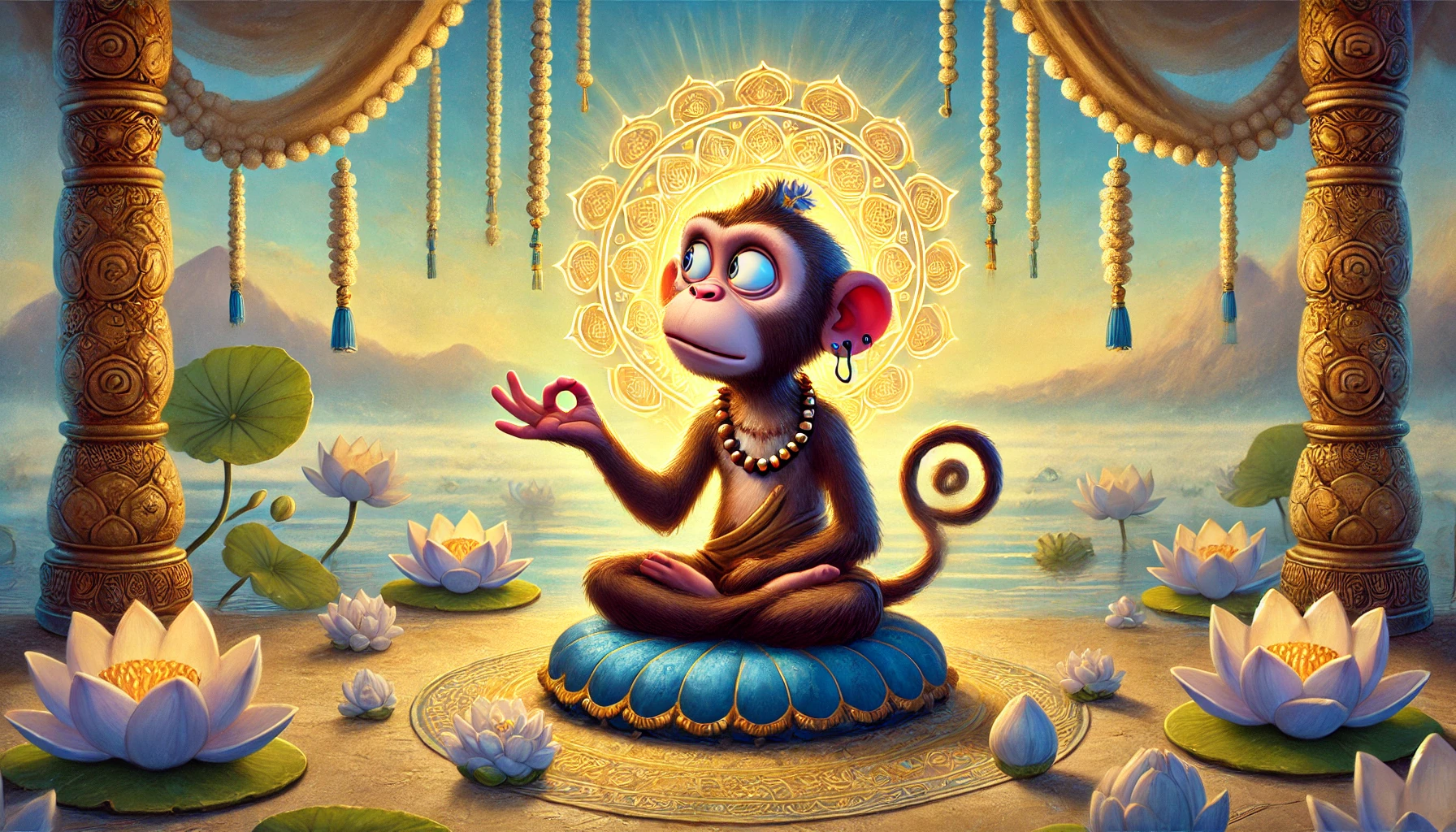


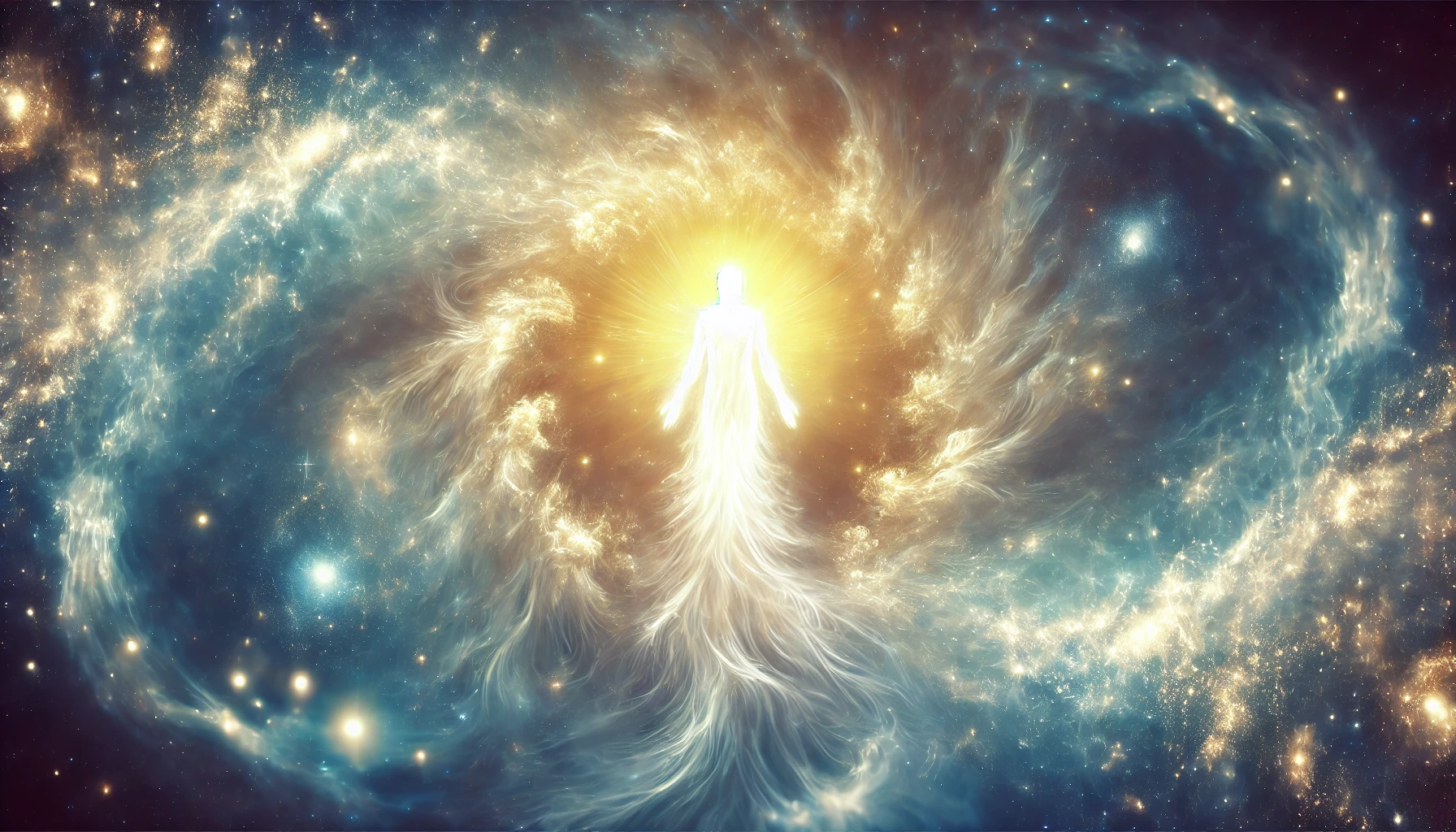
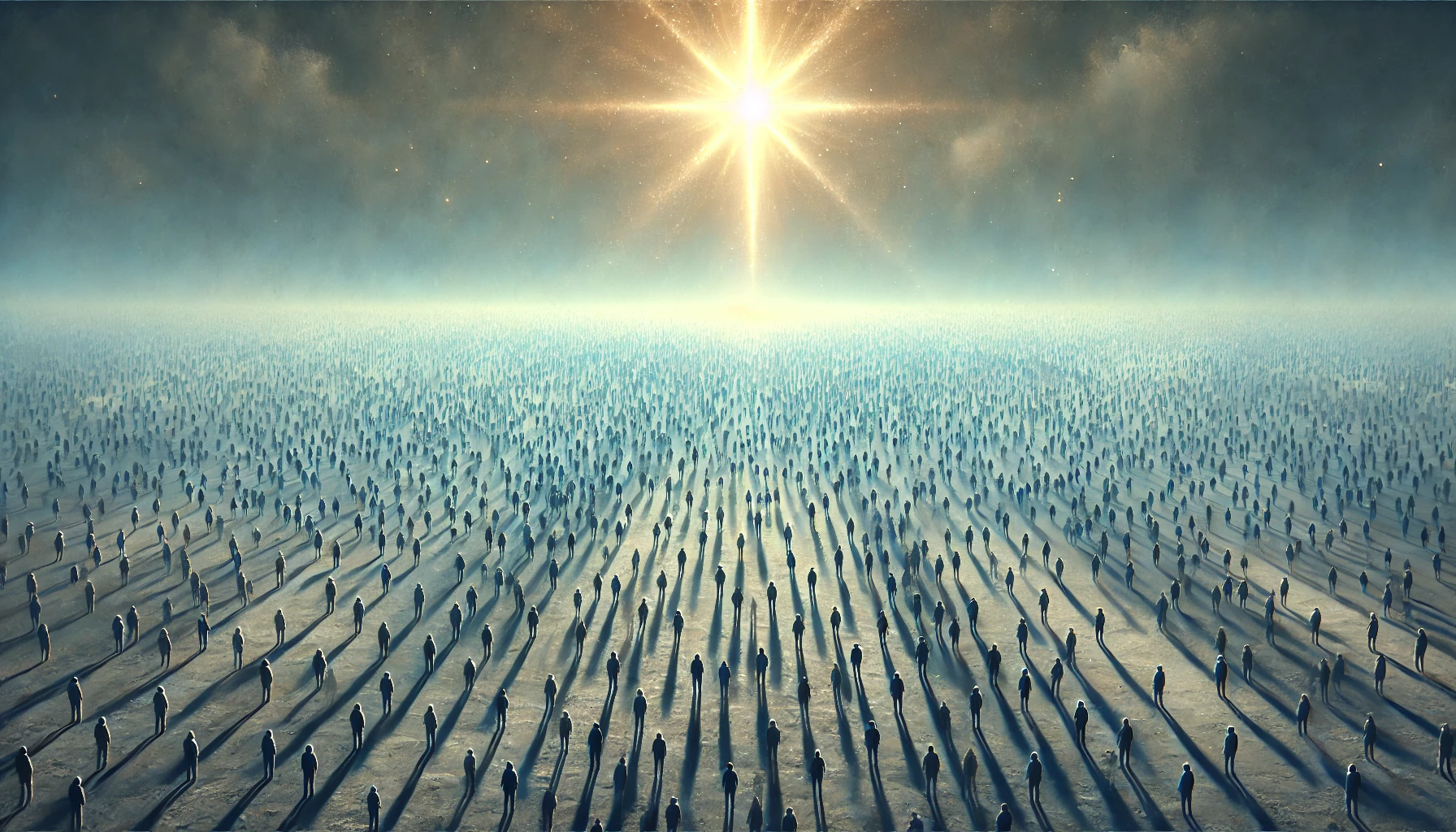
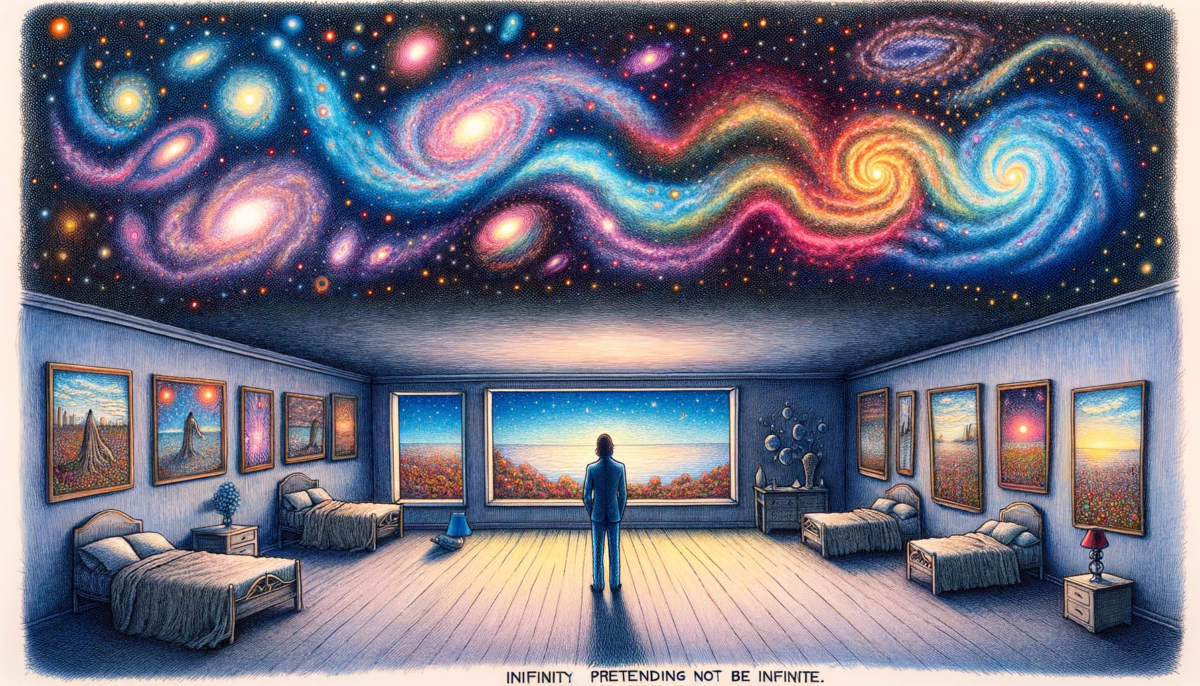
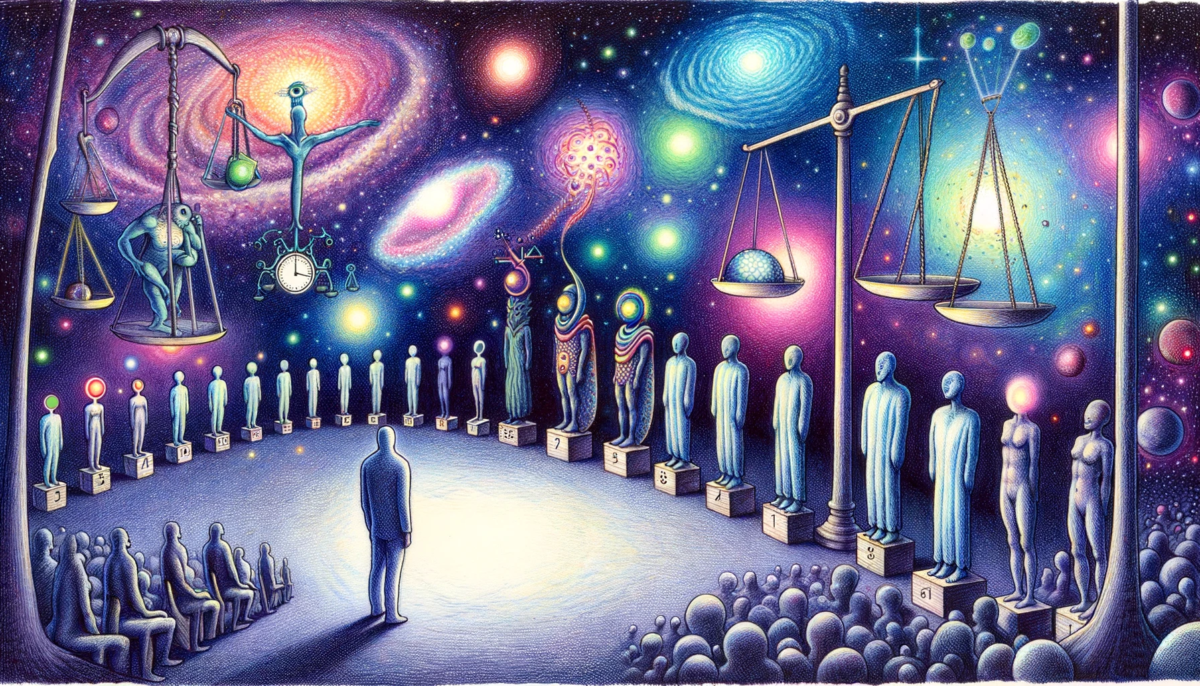
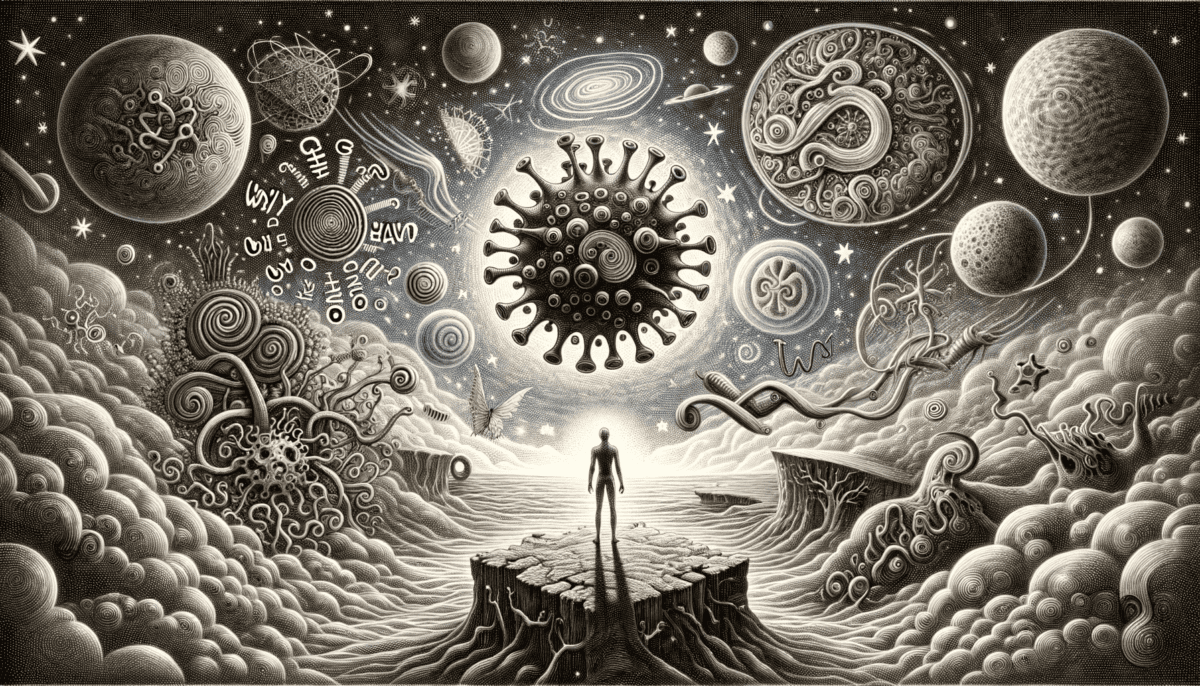

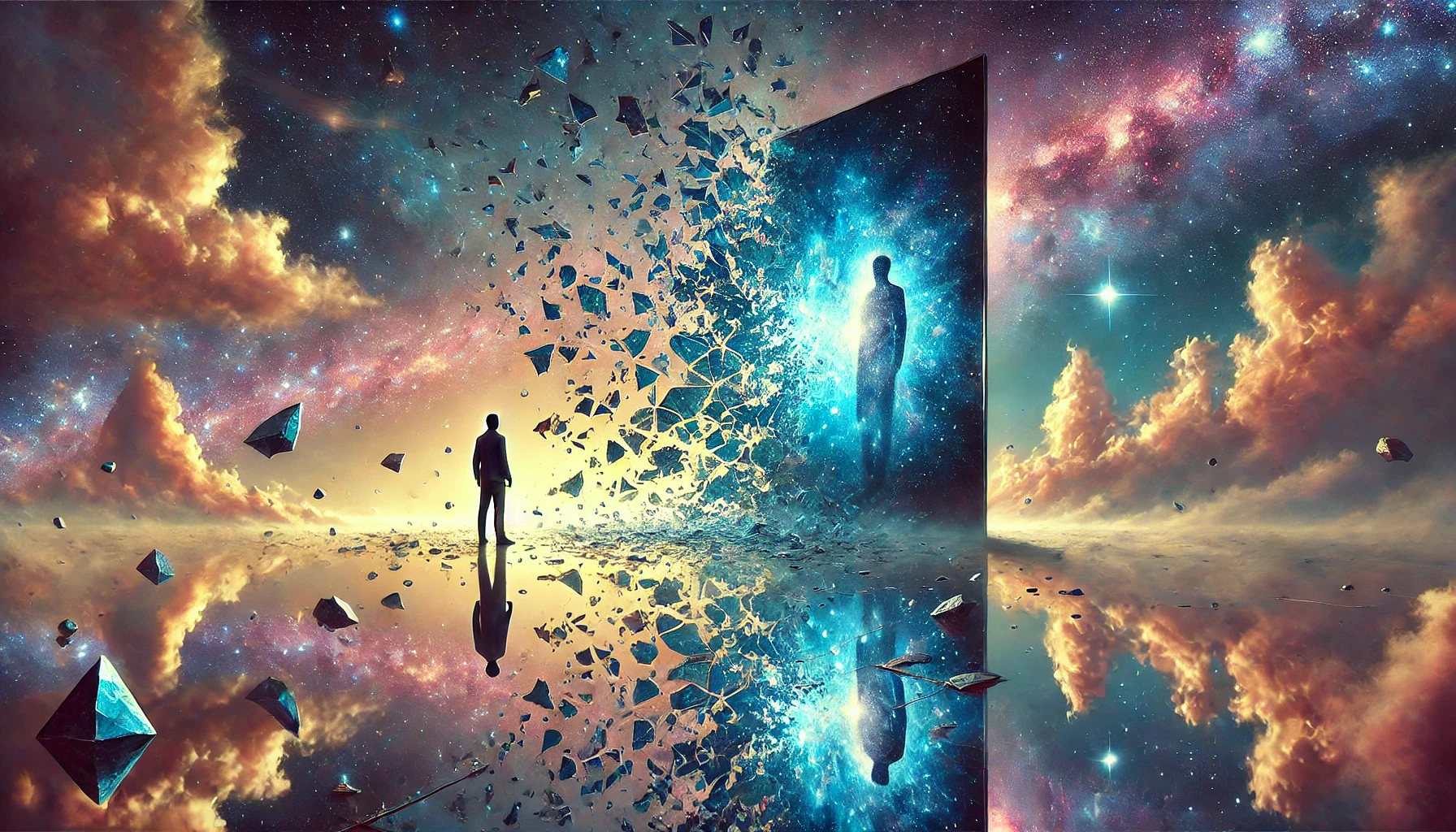


Leave a Reply